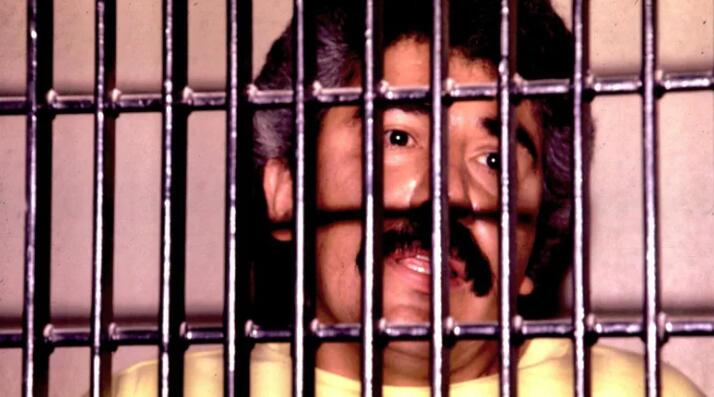Mexico captures drug lord Rafael Caro Quintero, U.S. to seek extradition

Caro Quintero was convicted of murder, torture of U.S. anti-narcotics agent in 1985
Mexico’s navy on Friday captured drug lord Rafael Caro Quintero, convicted of murdering a U.S. anti-narcotics agent in 1985, in a law enforcement coup that also saw the crash of a helicopter used in the mission, leaving 14 military personnel dead.
Marines flushed out Caro Quintero with a bloodhound in a far-flung corner of the northwestern state of Sinaloa, one of Mexico’s drug-trafficking heartlands, before the Black Hawk chopper came down as it was about to land further south.
Caro Quintero was a co-founder of the Guadalajara Cartel, one of Latin America’s most powerful drug-trafficking organizations during the 1980s, and had been among the most prized targets for U.S. officials.
The U.S. hailed the arrest and said it would waste no time in requesting his extradition.
“This is huge,” White House senior Latin America adviser Juan Gonzalez said on Twitter.
Caro Quintero was captured in San Simon in the Sinaloa municipality of Choix after the military-trained female bloodhound named Max found him in shrub land, the navy said.
The arrest comes after pressure from the United States, according to a Mexican official, and the same week President Andres Manuel Lopez Obrador met with U.S. President Joe Biden in Washington.
Lopez Obrador said on Twitter the navy would investigate what caused the crash of the helicopter in the city of Los Mochis, Sinaloa, that killed 14 and left one seriously injured. He said it had been carrying military personnel who were backing up the team that arrested the kingpin.
Murder of Kiki Camarena
Caro Quintero spent 28 years in prison for the murder of former U.S. Drug Enforcement Administration (DEA) agent Enrique (Kiki) Camarena, one of the most notorious killings in Mexico’s bloody narco wars. The events, dramatized in the 2018 Netflix series Narcos: Mexico, led to a nadir in U.S.-Mexico co-operation in a five-decade “war on drugs.”
Caro Quintero has previously denied involvement in the killing of Camarena. He was released in 2013 on a technicality by a Mexican judge, embarrassing the previous government.
- Location scout for Netflix drug war drama Narcos shot dead in Mexico: reports
He quickly went underground and returned to trafficking as part of the Sinaloa Cartel, according to U.S. officials, who put him on the FBI’s Top 10 most-wanted fugitives list and put a $20-million US bounty on his head, a record for a drug trafficker.
Last year, he lost a final appeal against extradition to the U.S. He will be extradited as quickly as possible, another Mexican official said.

“It is probably one of the most important captures of the last decade in terms of importance to the DEA,” said Mike Vigil, the DEA’s former chief of international operations.
U.S. Attorney General Merrick Garland said he would seek Caro Quintero’s immediate extradition.
“There is no hiding place for anyone who kidnaps, tortures and murders American law enforcement. We are deeply grateful to Mexican authorities for their capture and arrest of Rafael Caro Quintero,” Garland said in a statement.
Before extradition, Caro Quintero will be held in Altiplano prison in the state of Mexico, Mexican prosecutors said. The penitentiary is notorious as the one from which his old Sinaloa Cartel associate, Joaquin (El Chapo) Guzman, escaped in 2015.
Symbolic impact
While the 69-year-old Caro Quintero is no longer considered a major player in international drug trafficking, the symbolic impact of his capture is significant.
For Mexican security expert Alejandro Hope, the arrest points to significant co-operation between the U.S. and Mexico, despite recent clashes over security.
“This type of capture is unthinkable without the participation of the DEA,” he said.
-
ANALYSIS
Why designating Mexican drug cartels terrorists might not be the way to fight organized crime
Mexico’s unwillingness to extradite Caro Quintero to the U.S. before his release from prison had been a source of tension between the two countries. A U.S. official said Washington was very eager to have him extradited.
“This will hopefully start to mend the frayed relationship between the United States and Mexico in terms of combating drug trafficking,” said Vigil.
Related News
Trump signs executive order to speed up deepsea mining permits
U.S. President Donald Trump on Thursday signed an executive order aimed at boosting the deepseaRead more
See the Ukraine war ceasefire proposals put forth by the Trump administration
Reuters has seen the text of a set of proposals to end Russia’s war inRead more
